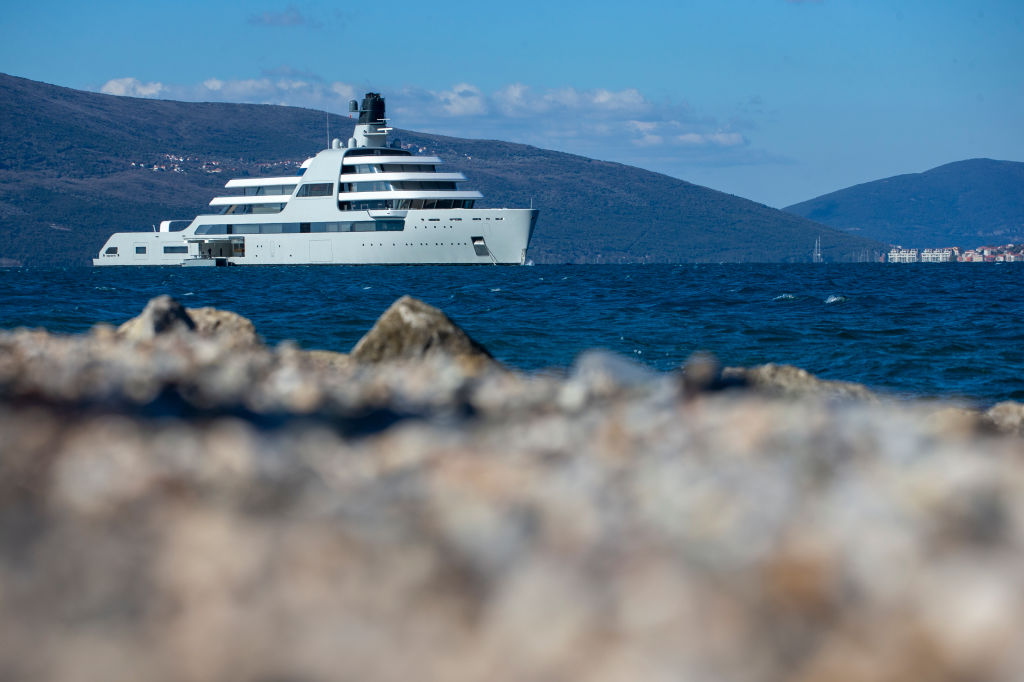The threat spectrum

Planet A
US President Joe Biden has moved to ban Russian oil imports with bipartisan congressional support. The White House is also trying to coordinate a wider oil embargo with European allies. Only 3% of Russia’s oil exports are sent to the US, but more than 50% go to European markets.
Until this point, the Russian oil sector was partially exempted from multilateral sanctions targeting Russia’s financial system, such as the country’s exclusion from the SWIFT financial transaction system and sanctions on the Russian central bank. The Russian government relies heavily on oil exports, which contribute around 25% of total government revenue.
Restricting oil imports may drive further inflation in the US, which was already alarmingly high at 7.9% in the year to February. To ease supply shortages, the US will likely continue its rapprochement with oil-rich Venezuela. The EU has expressed a desire to reduce its dependence on Russian energy exports, but the issue remains divisive in Europe, which is unlikely to announce an outright ban anytime soon.
Democracy watch
Myanmar’s ruling military council has revoked the citizenship of eight members of the shadow National Unity Government, or NUG, and three prominent pro-democracy advocates. The eight NUG cabinet members have also been charged with high treason, which carries the death penalty. The announcement was justified by the government on the basis that the individuals harmed the ‘national interest’.
The NUG considers itself to be the legitimate Myanmar government and was created by elected officials of the Aung San Suu Kyi government, which lost power following a military coup in February last year. Most NUG leaders are now hiding in border regions with armed rebel groups and the military junta has continued its use of scorched-earth tactics to deter domestic opposition.
These actions against former officials of the last democratically elected government severely undermine struggles to restore legitimate elections in Myanmar.
Information operations
The International Paralympic Committee is still waiting for an explanation from China Central Television justifying the Chinese broadcaster’s decision to censor IPC President Andrew Parson’s remarks denouncing the Russian invasion of Ukraine at the opening ceremony of the Beijing Winter Paralympics.
While Parson didn’t explicitly address Russia’s attack, the meaning behind his ‘message of peace’ was evident in the context of the IPC’s recent ban on Russian and Belarussian Paralympians. Clearly referencing Russian militarism, Parson emphasised that last December’s ‘Olympic truce’ must be ‘respected and observed, not violated’. However, China Central Television’s broadcast obscured Parson’s sentiments by failing to fully translate his comments, muffling the audio of his voice and eliminating Weibo comments unflattering to China’s ‘forever’ friend, Russia.
As global condemnation of Russia’s invasion grows, the West is noting how far China is willing to employ its censorship apparatus to support Russia. These observations may offer insight into the actual strength of the Russo-Chinese ‘no limits’ partnership.
Follow the money
Superyachts and other assets owned by Russian oligarchs are being seized by countries sanctioning Russia in response to the invasion of Ukraine. Others are sailing for friendlier waters like those of the Maldives.
These measures come as Western allies attempt to put pressure on prominent and high-profile figures in Russia. Russian oligarchs are ultra-rich businessmen with links to the Kremlin. While their overall political influence has decreased since Putin’s rise to power, they have maintained a close relationship with the president and helped him remain in power.
The sudden onslaught of sanctions has sparked a mass shift of assets around the world, as oligarchs try to evade sanction jurisdictions, leading in turn to even tighter sanctions on these individuals. A few oligarchs have spoken out, calling for peace and an end to the war, possibly motivated by the hope that Western governments will unfreeze their assets. However, most seem insistent that they are in no position to put a stop to the fighting.
Terror byte
Australia has listed the entire Palestinian group Hamas as a terrorist organisation after the US, EU and UK made similar decisions. For the past two decades, only members of Hamas’s paramilitary wing, the Izz al-Din al-Qassam Brigades, were officially designated as terrorists.
This upgrading of Hamas’s status helps Australia align with coordinated allied responses to the group. Hamas has ruled the Gaza Strip since 2007 after expelling the government of Mahmoud Abbas to the West Bank. But local tensions between Israel and Hamas have remained, and Hamas was behind large-scale rocket attacks on Israel last year. Hamas’s capacity to survive the subsequent retaliation from Israel serves as another potential reason behind Australia’s decision.
The change of designation by Australia removes any distinction between the political and military wings of Hamas, allowing the government to target Hamas’s planning, finances and operations more broadly and effectively.